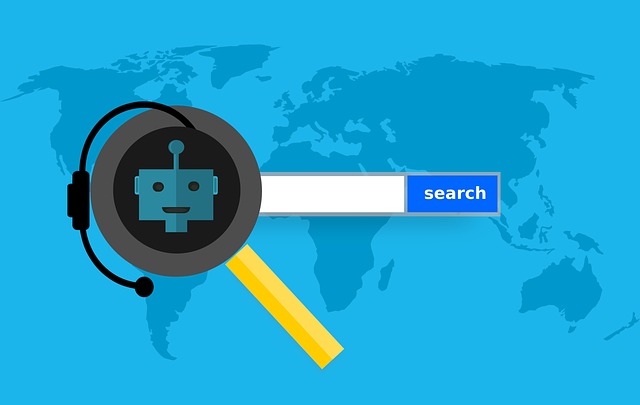As the world becomes increasingly digital, web applications have become a crucial part of our daily lives. However, with this increased reliance on technology comes an increase in cyber threats. This is where a web application firewall (WAF) comes into play. A WAF acts as a shield between your web application and potential attackers, blocking harmful traffic while allowing legitimate users to access your site without interruption. In this blog post, we’ll dive deeper into what a WAF is, its benefits and types, and how to choose the right one for your needs. So buckle up and get ready to armor up your website!
What is a web application firewall?
A web application firewall (WAF) is a security solution that helps protect websites and web applications from cyber attacks. It sits between the client and server, monitoring traffic and filtering out malicious requests. Essentially, it acts as a barrier between your website/application and potential attackers.
Unlike traditional firewalls that only control network traffic based on IP addresses or ports, WAFs focus specifically on HTTP traffic to detect threats such as SQL injection attacks or cross-site scripting (XSS). By analyzing incoming requests for malicious patterns or payloads, WAFs can block harmful traffic before it reaches your site.
In addition to blocking potentially harmful traffic, WAFs provide other security benefits such as preventing data leaks and protecting against DDoS attacks. They can also help businesses comply with regulatory requirements by providing detailed logging of all web activity.
A WAF is an essential component of any comprehensive website/application security strategy. By actively blocking suspicious activity while allowing legitimate users to access your site without interruption, you can ensure the safety and integrity of your online assets.
The benefits of a web application firewall
A web application firewall (WAF) can provide numerous benefits to your website and business. One of the most significant advantages is that it can protect your website from various cyber attacks, including SQL injection, cross-site scripting (XSS), and other vulnerabilities.
By using a WAF, you can filter out malicious traffic before it reaches your server. This means that hackers won’t be able to exploit any security weaknesses in your website’s code or infrastructure.
Another benefit of a WAF is that it can help improve compliance with industry standards and regulations such as PCI DSS. A WAF ensures that all sensitive information sent or received by the website is secure, which helps prevent data breaches.
A WAF also provides real-time monitoring of incoming traffic to identify any suspicious activity. With this feature, you will receive alerts if there are any attempts at unauthorized access or if someone tries to exploit vulnerabilities on your site.
Moreover, a WAF offers an additional layer of protection against Distributed Denial-of-Service (DDoS) attacks. By blocking illegitimate requests from bots and other automated sources before they reach the server, a WAF keeps sites running smoothly even when under attack.
Investing in a web application firewall provides peace of mind for businesses looking to keep their websites safe from malicious actors while maintaining optimal performance levels for visitors.
The types of web application firewall
There are three main types of web application firewall available in the market today: network-based, host-based, and cloud-based.
Network-based firewalls operate at the edge of a network and work by examining traffic as it passes through. They can be effective in blocking known attacks but may struggle to keep up with advanced threats.
Host-based firewalls, on the other hand, are installed directly on servers to protect against attacks targeting specific applications or services running on that server. This type of firewall provides more granular control over access to specific resources than a network-based firewall.
Cloud-based web application firewalls provide protection for applications hosted in the cloud or behind CDN providers like CloudFlare. These solutions offer scalability and flexibility since they don’t require hardware installation or maintenance, making them ideal for businesses looking to scale quickly while maintaining high levels of security.
When choosing a web application firewall solution, it’s important to consider your organization’s needs and budget constraints. Each type has its own advantages and disadvantages depending on your use case scenario so ensure you do thorough research before making any decision.
How to choose a web application firewall
When it comes to choosing a web application firewall, there are several factors that you need to consider. First and foremost, you need to identify your specific security needs. What kind of attacks are you trying to prevent? Do you have any compliance requirements that your web application must meet?
Next, evaluate the features of different web application firewalls in the market. Look for a solution that offers comprehensive protection against known and unknown threats such as SQL injection and cross-site scripting (XSS) attacks.
Consider a vendor’s customer support options when choosing a web application firewall as well. Ensure they offer timely assistance if an issue arises with their product.
It is also important to choose a solution that integrates with other security tools in your organization and provides easy management through centralized control panels.
Balance cost with quality when selecting a web application firewall. Remember, investing in good cybersecurity measures can save significant costs associated with data breaches down the line.
Conclusion
A web application firewall is an essential tool for protecting your website or application from cyber threats. It acts as a barrier between your web server and the internet, filtering out malicious traffic and preventing attacks before they can do any harm.
When choosing a web application firewall, it’s important to consider factors such as ease of use, customization options, and customer support. You’ll also want to choose a firewall that meets all of your specific security needs without sacrificing performance.
By investing in a high-quality web application firewall, you can rest assured that your website or application will be well-protected against cyber threats. So don’t wait – take steps today to secure your online presence with the power of a web application firewall!










FIND US ON SOCIALS